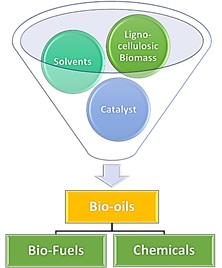
Rui Galhano dos Santos
CERENA, PORTUGAL
Title: Can the adverse effects caused by industrialization be mitigated towards the effective implementation of the biorefinery concept?
Biography
Biography: Rui Galhano dos Santos
Abstract
Statement of the Problem: Being a hot topic, although not a great news to anyone, the great dependence of mankind on petroleum sources has been, over the last few decades, becoming more than an inconvenient, a problem that eagers to be solved and overcome. Humanity, in general, is aware of the adverse effects that the fossil sources have caused to the environment. Alternatives to such sources have been envisaged and outlined. Still limited solutions to overcome those issues were identified. The scientific community have focused much of their attention on biorefineries. This latter concept aims to basically to achieve three major objectives, the production of bioenergy, biofuels, and biochemicals
Methodology & Theoretical Orientation: One of the processes among those that can be explored under the concept of biorefineries is the direct liquefaction of lignocellulosic biomass catalyzed by acids. This process has been widely studied and applied to several sources biomasses. The lignocellulosic biomass is considered to be source of products with high chemical interest.
Findings: The studies conducted have shown that liquefaction can lead to bio-oils that have proven to possess very good anti-oxidant activity, to be used as carbohydrate building block for synthesis or fermentation processes, bio-fuels, chemicals platform. The direct liquefaction has been applied to a wide range of raw materials and all of them has been successfully liquefied by optimizing the reaction conditions.
Conclusion & Significance: The results to be presented demonstrate that liquefactions could be, in fact, an effective tool to access products with chemical interest as well as bio-fuels. Alongside, wastes and residues can be this way mitigated contributing, thus, to a better environment towards the up-cycling of feedstocks that have no economic value and would end-up to be burnt without any valorization what-so-ever increasing the glasshouse effect, causing, therefore, more damage to the environment.


